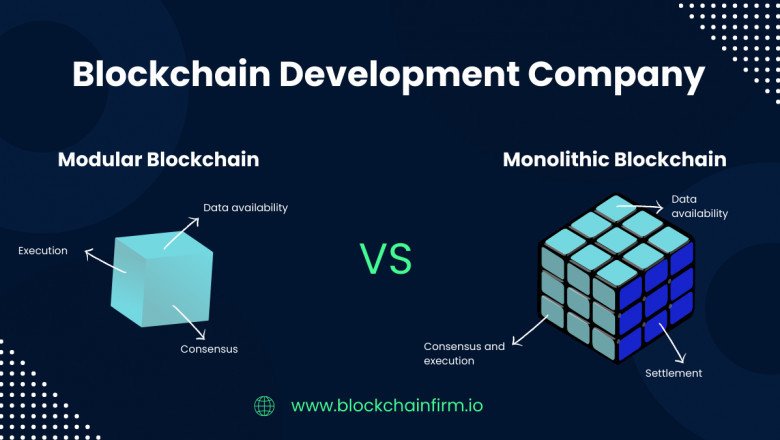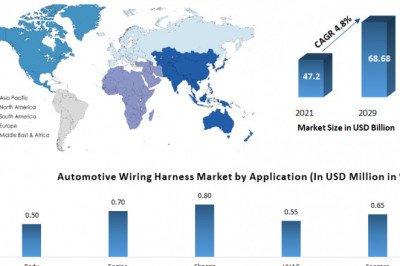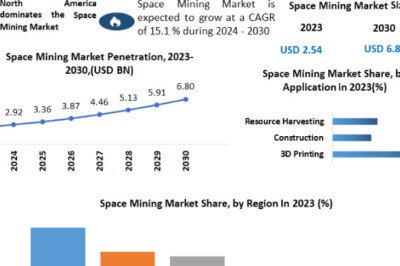
views
In recent years, the world has witnessed the rise of blockchain technology and the increasing number of use cases in various industries. One of the most significant advancements in this field is the development of modular and monolithic blockchains.
These two blockchain architectures have key differences in terms of their functions and the way they execute transactions.
Let’s discuss the major differences between the modular and monolithic blockchain in this blog.
Exploring Monolithic Blockchain
A monolithic blockchain has all the necessary functionalities built into its base layer. This means that the blockchain network executes all four functionalities, including consensus, execution, data availability, and settlement, in the same layer. The most prominent examples of monolithic blockchains are Bitcoin and Ethereum.
Highlights And Challenges Of Monolithic Blockchain
Monolithic blockchain has several benefits, including:
Protection & Security
Monolithic blockchain can put secure transactions in force on their own nodes, ensuring data security and protection.
Usage
Monolithic blockchains are easy to recognize and relatively simpler to implement and design.
However, they also have several challenges, including:
Inflexibility
Monolithic blockchains are inflexible in comparison to modular blockchains, affecting production quality. They do not allow for an outstanding function even when there is downtime resulting from overload.
Centralization
When big block sizes are applied, high throughput becomes a trade-off for high hardware costs, decreasing the variety of validators on the chain, which causes centralization.
Exploring Modular Blockchain
A modular blockchain separates the system into several possible parts or additives that are independently developed. This means that the execution layer is independent of the bottom consensus and data availability layers, permitting nodes to execute transactions separately rather than performing all the transactions to test validity within a limited space or block. The most prominent examples of modular blockchains are Cosmos, Fuel, and Celestia blockchains.
For better blockchain development services, get in touch with Blockchain Firm, who has more than half a decade of experience.
The Key Features Of Modular Blockchain
The modular blockchain consists of 3 core layers that work independently to make its output easier and quicker. These layers are the consensus layer, data availability layer, and execution layer.
The consensus layer establishes the set of guidelines to be observed through nodes for verifying and validating blocks and agreeing on a canonical blockchain state. The data availability layer manages the on-chain and stale-chain blockchain records, making sure that records are available and public for everybody to look at.
Highlights And Challenges Of Modular Blockchain
Modular blockchain has several benefits, including:
Flexibility
Modular blockchains are more flexible than monolithic blockchains, which allows for a better and smoother production quality. They allow for an outstanding function when there is downtime resulting from overhead.
Decentralization
Modular blockchains ensure true security and decentralization through their consensus layer, making them more reliable and trustworthy.
However, they also have several challenges, including:
Complexity
Modular blockchains are more complex than monolithic blockchains, which makes them harder to implement and design.
Conclusion
Blockchain has undergone a significant evolution in recent years, leading to the development of these two architectures. Hope you understand the key differences between monolithic and modular blockchains. Ultimately, both have their place in the blockchain ecosystem, and the choice between them will depend on the needs and objectives of each application.
Are you searching for a team to integrate blockchain into your business? Connect with the leading blockchain development company that helps you with customizable and affordable services.












Comments
0 comment